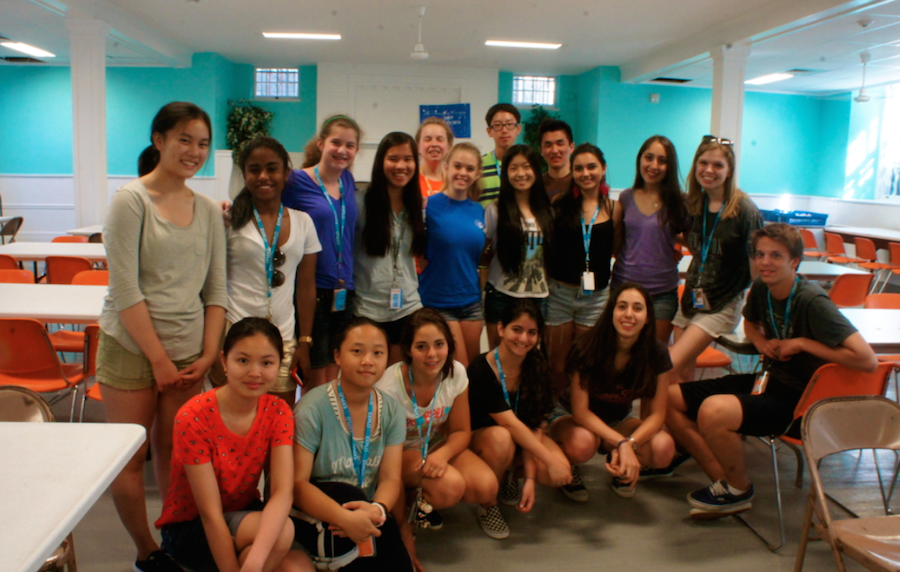Daily fresh: soup kitchen lessons
Over the vacation, many of us either journeyed to different corners of the world or stayed back to relax at home. I spent an amazing three weeks at Yale University for a summer program. One of the workshops I was part of dealt with community service, as well as urgent world problems and feasible solutions. Out of all the issues we explored, we gave special attention to homelessness, as it was considered the most relevant to the city of New Haven. A recent study revealed that while New Haven holds less than 4% of Connecticut’s population, it houses 17% of the state’s homeless population. Part of this high concentration is due to the fact that New Haven offers more services to the homeless than any other city. My summer-program class agreed that volunteering at a soup kitchen would be the most gratifying way to conclude our program.
The first thing that comes to mind when you think of a soup kitchen is a place where people make soup to serve to the community. Obvious, right? Well, that’s where my soup kitchen lessons begin, and from what I’ve experienced, you don’t actually make soup. As volunteers, our job was to clean tables and chairs, swipe and mop the floor, and prepare nutritious lunch bags. In the meantime, the cooking staff prepared the actual meal we served. When everything was clean and tidy, my peers and I settled behind the counter to serve the food. The doors opened. Show time.
One by one, New Haven locals eagerly hurried in, with trays at hand, forming a line up against the wall. I began to observe all the unfamiliar faces; thoughts and questions were bundled up in my mind, and suddenly, a wave of guilt overtook me. A common misconception is that community service is all about feeling good about yourself, but that isn’t always the case. I felt guilty for so many things. Keeping a smile on my face never felt so hard because what I really felt like doing was crying, but not because I felt pity. Instead, I wanted to experience life from a new perspective.
As I was handing out water, a construction worker, as could be guessed by his bright orange vest with neon yellow stripes and blue jeans with streaks of paint, surprised me with an unexpected comment. He held the glass of water I offered, looked me in the eyes and said, “Thank you, thank you, thank you. No one’s been this kind to me in years.” Whether or not he was being hyperbolical, I’ll never know, but his genuine attitude was enough to pinch my heart and pump blood all the way to my cheeks. All I did was say, “Good afternoon, sir! Don’t forget to stay hydrated and enjoy your meal!” We so often underestimate the impact of a gentle smile and a few caring words.
Later, another man walked in. He was the stereotypical hardcore motorcyclist; he wore a tight white tank top, loose-hanging jeans embellished with silver chains on the sides, a black bandana wrapped around his forehead, and black duty boots. What I found most intriguing was that he had a cigarette behind each of his ears, the same way teachers put pencils behind theirs. After everyone was served, he stood up to refill his glass of water, and we engaged in a quick conversation about the weather. This man, whom I so quickly judged as a troublemaker, was actually a very amiable person. As the old adage goes, “Don’t judge a book by its cover.”
The last figure that stood out to me was an old, frail lady. Without bothering to look to the side, she walked past me, so I reached out to give her a gentle pat on the shoulder. I assumed she hadn’t noticed the glass of water I offered her. Strangely, however, she turned to me and said, “Oh, sweetie, I don’t drink water. I haven’t in years, actually.” I can only imagine why.
Truth is, I’ll never know about the last time someone was kind to the construction worker, if the friendly man actually rides motorcycles, or what that lady drinks instead of water. This experience left me lost in thought. It was heart-wrenching to see that many hungry, dirty people who had walked to the soup kitchen, dragging along all their belongings in a single bag. Knowing that they had no place to call home, I felt ashamed. Ashamed for being too busy to be thankful.
Source: yaledailynews.com

This is Fe’s third and final year in The Talon as Features Editor. Fe spends her time reading non-fiction books, learning eccentric words, collecting...










